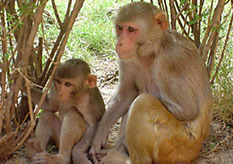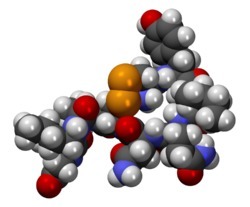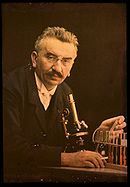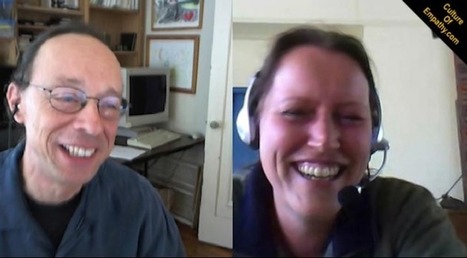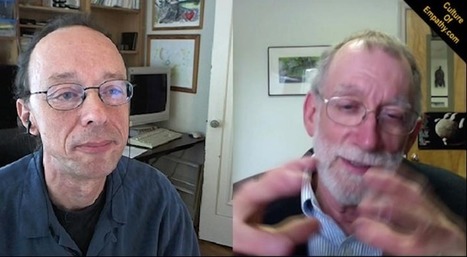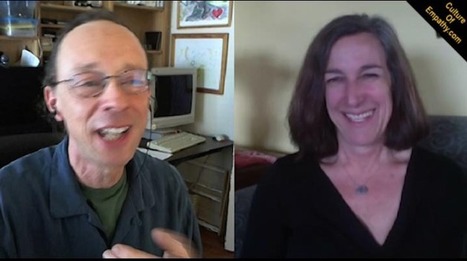 Your new post is loading...
 Your new post is loading...

|
Scooped by
Edwin Rutsch
May 22, 2012 11:51 AM
|
Researchers have uncovered rare brain cells in monkeys, which can be tied to self-awareness and empathy in humans. Max Planck scientists found that the anterior insular cortex is a small brain region that plays a crucial role in human self-awareness and in related neuropsychiatric disorders. An exclusive cell type – the Von Economo Neuron (VEN) – is located there.

|
Scooped by
Edwin Rutsch
May 21, 2012 4:48 PM
|
BETSEY STEVENSON: "And then there's this other issue, which is portraying him as a guy who has no empathy for people. And that really resonates, because he comes across as a guy who has no empathy for people, in many different dimensions. You know, you've got the gay-bashing thing when he was in high school. You've got his wife saying I don't feel rich, even though I'm richer than 99.99% of Americans. I mean, they come across as really having no empathy for people."

|
Scooped by
Edwin Rutsch
May 21, 2012 4:36 PM
|
Oxytocin is sometimes called the love hormone because it has a role in maternal bonding. In a new ongoing, double-blind, placebo-controlled study at Yale School of Medicine, a team of researchers have reported that oxytocin can increase brain function in areas that are associated with the processing of social information in young people who have autism spectrum disorder (ASD)... The study, which is the first of its kind, involves administering oxytocin in a nasal spray to the study participants and then observing their brain function using functional magnetic resonance imaging.

|
Scooped by
Edwin Rutsch
May 21, 2012 4:26 PM
|
Two years ago, at a meeting on science and education, Richard Davidson challenged video game manufacturers to develop games that emphasize kindness and compassion instead of violence and aggression. With a grant from the Bill & Melinda Gates Foundation, the University of Wisconsin-Madison professor is now answering his own call. With Kurt Squire, an associate professor in the School of Education and director of the Games Learning Society Initiative, Davidson received a $1.39 million grant this spring to design and rigorously test two educational games to help eighth graders develop beneficial social and emotional skills — empathy, cooperation, mental focus, and self-regulation.

|
Scooped by
Edwin Rutsch
May 20, 2012 2:45 PM
|
Oxytocin, often referred to as a love hormone, boosts activity in brain areas of autistic children involving sight, hearing and understanding other people. These are the preliminary results from an ongoing, large-scale study led by postoctoral fellow IIanit Gordon and Kevin Pelphrey, associate professor of child psychiatry and psychology at the Yale School of Medicine. img http://en.wikipedia.org/wiki/Oxytocin

|
Scooped by
Edwin Rutsch
May 19, 2012 2:54 PM
|
Compassion is one of the most important of character traits, yet its an attribute that comes from learning, mostly in the school of hard knocks. People who have compassion reflect the face of God, because He Himself is compassionate to all. Compassion is what we feel when we identify with the pain, and suffering of others. It’s the ability to emotionally put yourself in someone else’s skin and feel what they feel. Its having empathy and sympathy for the suffering of others. Its one of the most important of the middot, yet its an attribute that comes from learning through our own experiences instead of by reading. by drschiffman

|
Scooped by
Edwin Rutsch
May 18, 2012 5:00 PM
|
Catherine Cadden has been an educator since 1987 finding alternatives to teaching, learning, and conflict resolution that work with the principles of nonviolence. Author of. Peaceable Revolution Through Education. How can we build a culture of empathy?
1. Truly releasing enemy imaging that blocks compassion.
2. Remaining curious about each other and letting go our expectations based on our assumptions and our fixed ideas about how people ought to behave.
3. Being clear about our needs in a way that does not hold them as more or less important than another's.
Sub Conference: NVC

|
Scooped by
Edwin Rutsch
May 18, 2012 4:58 PM
|
Owen Marcus moderates this panel discussion about how men can deepen their empathy and live more fulfilling lives. Owen, David and Michael facilitate men's groups. I first discovered the power that lies in masculine empathy back in the mid 1970’s. Since then my training and experience showed that as men we were never taught how to utilize our unique Masculine Emotional Intelligence. Through my books, blogs and groups I attempt to teach men what we never learned around empathy and emotions. www.owenmarcus.com is a resource for men and women concerning masculine empathy and micro-communities.

|
Scooped by
Edwin Rutsch
May 18, 2012 4:56 PM
|
Rick is a nationally recognized educator and speaker with 45 years of experience working in and for schools. With a master’s in education from Harvard University, Rick has devoted his career to building thriving learning communities. Author, "The Genius in Children: Bringing out the best in your child" How to build culture of empathy? 'Children have empathy; the best way to educate it is to utilize it. All good educators know empathy is one of their greatest abilities, and the origin of some of their greatest passions. Their brains are designed to know how others feel. They are wired with mirror neurons; when someone else is hurt, they feel it. By eighteen months they know that another person might want something different from what they want, and are inclined to give them what they want, rather than what they would choose for themselves.'
Sub Conference: Education

|
Scooped by
Edwin Rutsch
May 18, 2012 4:55 PM
|
Lesley Grant, founder and director of Marin Mindfulness a unique community cooperative program that teaches mindfulness and loving-kindness practice to parents, teachers and children, preschool-preteens, speaks about how she is adapting mindfulness and applied mindfulness practices for children, parents and co-parenting couples, toward developing a culture of empathy. She says: “Parents who practice mindfulness can develop the capacities to raise children who seek creative non-violent solutions to problems.” Mindful family relationships and both parents and children’s peer relationships are a foundation of a culture of empathy.
Sub Conference: Education (Mindfulne

|
Scooped by
Edwin Rutsch
May 18, 2012 4:54 PM
|
Andrea Cohen is a communications consultant, project developer, and facilitator who has been involved with the Compassionate Listening Project for many years. Author: Practicing the Art of Compassionate Listening. For Andrea, empathy is like the exquisite attunement of musical strings to each other. The opposite is chaos, discord, and the sound of finger nails on the chalk board. She offers ways and skills to create and deepen the attunement. How to build a culture of empathy? Listen with the heart and teach people specific conflict resolution skills they can use in the heat of conflict when they might tend to lose their ability to stay centered in the heart.
Sub Conference: Education

|
Scooped by
Edwin Rutsch
May 18, 2012 4:53 PM
|
Lisbeth Holter Brudal is a psychologist living in Oslo, Norway. She developed a 40 hour “Empathic Communication” course for professionals who want to educate others. This method is now used in hospitals, in schools, family centers and different institutions in Norway. By educating professionals in a professional way of communicating based on empathy, we have the experience that our courses influence the daily work in a positive way for doctors, nurses, teachers and others in their contact with patients and pupils and also in the way they cooperate in the hospital or in the school.

|
Scooped by
Edwin Rutsch
May 18, 2012 2:42 PM
|
A five-day programme for convicted offenders has been shown to be effective in increasing their levels of concern for their victims and motivation to change. The Supporting Offenders through Restoration Inside (SORI) programme, which has been piloted in seven prisons across the UK, is the subject of a study published in the journal Criminological and Legal Psychology today. SORI aims to increase victim empathy in offenders and motivate them to change their offending behaviour and take responsibility for the harm they have caused. It consists of a one-day taster programme to help offenders decide whether they want to attend the full four-day victim awareness course, and introduces the principles of restorative justice The rest of the SORI course includes role-plays in group-work settings and individual exercises to encourage victim empathy in offenders.
|

|
Scooped by
Edwin Rutsch
May 22, 2012 11:10 AM
|
So when someone at the second day of the Patient Experience Summit asked Cleveland Clinic CEO Toby Cosgrove where in his institution he's found the greatest resistance to creating empathically engaged connections with patients, he gave a quick and candid answer. "The docs," he said. "The biggest problem is the docs.".... It was all part of a theme conveyed by many at yesterday's gathering, the third annual Patient Experience Summit, which focused on empathy and innovation in patient care... "Entering a patient's room with a positive attitude, a caregiver can choose to be present with patients, and connect with them," Lyons said. "Patients are people: interesting, complicated, wonderful people.
"Listen to them." By Evelyn Theiss

|
Scooped by
Edwin Rutsch
May 21, 2012 4:41 PM
|
Thousands of individual tragedies are playing out in Alabama among two separate groups: undocumented immigrants and those without health insurance. Empathy clearly has no place in our legislative process. The only question our lawmakers believe we are asking is, “How does it affect me?”

|
Scooped by
Edwin Rutsch
May 21, 2012 4:31 PM
|
Max Planck scientists discover brain cells in monkeys that may be linked to self-awareness and empathy in humans. The anterior insular cortex is a small brain region that plays a crucial role in human self-awareness and in related neuropsychiatric disorders. A unique cell type – the von Economo neuron (VEN) – is located there.
For a long time, the VEN was assumed to be unique to humans, great apes, whales and elephants. Henry Evrard, neuroanatomist at the Max Planck Institute for Biological Cybernetics in Tübingen, Germany, now discovered that the VEN occurs also in the insula of macaque monkeys.
img http://bit.ly/yYTzGr

|
Scooped by
Edwin Rutsch
May 20, 2012 2:48 PM
|
About the Program on Empathy Awareness and Compassion in Education (PEACE) in the PRC
The PEACE area seeks to promote health and wellbeing in children, youth and families through the scientific understanding and promotion of awareness, compassion and empathy. The program includes faculty, research associates and students whose work focuses on developing a strong multidisciplinary science in this emerging area. PEACE supports interdisciplinary scholarly activities ranging from theoretical essays to basic research on the development of awareness, compassion and empathy, to the design and evaluation of interventions intended to foster these attributes in individuals and relationships.

|
Scooped by
Edwin Rutsch
May 20, 2012 12:52 PM
|
A Techwise Conversation with Paul Zak, author of The Moral Molecule... The substance is oxytocin, and my guest is Paul Zak. He’s a professor of economics, management, and psychology—a combination we’ll be asking him about in a bit—at Claremont Graduate University, and he’s the author of a book being published this month by Penguin, entitled The Moral Molecule: The Source of Love and Prosperity.... So we have this sort of yin and yang of morality right inside our own beings. We have oxytocin that makes us care about other people, makes us feel empathy—it’s hard to hurt people you feel empathy for—and then we have testosterone, which lets us enforce the rules. More about Paul Zak
http://bit.ly/u0Fy0D

|
Scooped by
Edwin Rutsch
May 18, 2012 7:26 PM
|
[you'll need to free register to view this article on sciencemag.org] The view of humans as violent war-prone apes is poorly supported by archaeological evidence and only partly supported by the behavior of our closest primate relatives, chimpanzees and bonobos. Whereas the first species is marked by xenophobia, the second is relatively peaceful and highly empathic in both behavior and brain organization. Animal empathy is best regarded as a multilayered phenomenon, built around motor mirroring and shared neural representations at basal levels, that develops into more advanced cognitive perspective-taking in large-brained species. As indicated by both observational and experimental studies on our closest relatives, empathy may be the main motivator of prosocial behavior. [Picture is the Russian doll model of empathy. An evolutionary developed layered approach to understanding empathy]
more about De Waal http://bit.ly/jn2OTe ;
srt url: http://bit.ly/M2HrmL

|
Scooped by
Edwin Rutsch
May 18, 2012 4:59 PM
|
Matthew Winslow is Associate Professor in the Psychology Department at Eastern Kentucky University. He teaches a class on empathy in the filed of psychology. Matthew says empathy is like being an actor and the best Halloween costume ever. He sees empathy as a skill that can be developed with practice. People need both the motivation to empathize and the ability to do so. Narcissism is the opposite of empathy because it’s the narrow focus on the self. The opposite of empathy is wearing mirrored sunglasses on backwards so you only see yourself.
Sub Conference: Science

|
Scooped by
Edwin Rutsch
May 18, 2012 4:56 PM
|
Sylvia is a trainer, coach, mentor in Compassionate Communication, Nutrition Consultant and Registered Dietitian with a Holistic twist. She offers support in helping people to take full responsibility for their health and well-being. Author of, Eat by Choice, Not by Habit. Empathy is like an inner spa, getting a massage, sitting in the hot tub and relaxing. The opposite is like the pain of hearing the fingernails on the chalkboard. Creating the empathy spa entails inner work, compassion within, compassion interpersonally and
compassion in the greater community.
Sub Conference: NVC

|
Scooped by
Edwin Rutsch
May 18, 2012 4:55 PM
|
Lidewij Niezink hosts the Empathy and Charter for Compassion groups on Linkedin. Her Ph.D was in empathy and altruism. She is a strategic advisor, trainer and innovator, and helps organizations, groups and individuals to implement different aspects of empathic concern into their professional as well as private lives. How to build a culture of empathy? Stop looking for the qualities of empathy and compassion outside of ourselves. We ALL possess these qualities already (as research is showing us). Develop and make use of the methods offered to cultivate empathy and compassion within ourselves according to what speaks to our individual minds and hearts.

|
Scooped by
Edwin Rutsch
May 18, 2012 4:54 PM
|
Widely known as “the grandfather of restorative justice,” Zehr began as a practitioner and theorist in restorative justice in the late 1970s at the foundational stage of the field. Author of many books including The Little Book of Restorative Justice. We talked about the role of empathy as a foundational value in the restorative justice movement. Edwin thinks a more accurate term would be restorative empathy. Howard said, "This vision of mutuality is supported by neuro science and attachment theory. The new neuro science is teaching us that we as a human being, our brains are designed to connect with other people." He feels victims of harm may be resistant to talking about empathy. Sub Conference: Justice

|
Scooped by
Edwin Rutsch
May 18, 2012 4:53 PM
|
Leah Green is Founder and Executive Director of the Compassionate Listening Project. She has led 26 training delegations to Israel/Palestine, speaks and writes about Middle East peace-building, and has produced three documentaries about the conflict. Contributor to the book: Practicing the Art of Compassionate Listening. Leah shared many personal stories about the power of empathy and compassion. How to build a culture of empathy? Training, I just believe that we need to integrate programs starting in school - meaning preschool, kindergarten, whatever age...and consistently include these programs at every level. For parents, I also think it would be incredibly helpful if every family had to have “training” before they have children. Sub Conference: Education

|
Scooped by
Edwin Rutsch
May 18, 2012 2:57 PM
|
Dipping into the vast literature on clinical empathy, one quickly discerns the dominant storyline. Everyone agrees that empathy, while hard to define, hovers around a kind of physicianly caring that incorporates emotional connection with patients. The connection conveys sensitivity to the patient’s life circumstances and personal psychology, and gains expression in the physician’s ability to encourage the patient to express emotion, especially as it pertains to his medical condition. Then the physician draws on her own experience of similar emotions in communicating an “accurate” empathic understanding of how the patient feels and why he should feel that way. by Paul E. Stepansky, Ph.D.
|



 Your new post is loading...
Your new post is loading...

